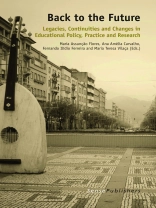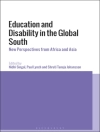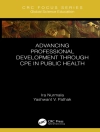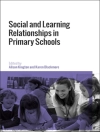Schools and teachers are facing various challenges in a rapidly changing world. In such circumstances, discussing and sharing concerns of mutual interest regarding policy, practice and research is crucial to creating more sophisticated understandings of the various challenges as a first step in the improvement of education. While the future should not be imprisoned in the past, the past does provide valuable lessons that will undergo new iterations in constructing the future. The future will be multi-faceted and complex and the different chapters included in this book are intended to provide important contributions from which to build the future of education. The different chapters provide readers with international perspectives, frameworks and empirical evidence of legacies, continuities and changes in educational policy, practice and research in teaching, teacher education and learning. We hope that they inspire the readers to build the future and to change their own professional realities. —Cheryl J. Craig, Ph.D., Professor, University of Houston, Houston, TX, USA, Secretary, ISATT This book metaphorically captures the looking backward to the past—pressing forward to the future that typically takes place on celebratory occasions. It causes us to pause and remember even as we race toward a time unknown to us. In a sense, the authors featured in this book serve as tour guides pointing out legacies, continuities and changes in teaching and teacher education. I strongly urge readers not only to peruse the chapters that follow, but to distill them to their essences and to glean what is of value to be learned from them. In conclusion, the ISATT Executive especially thanks the co-editors of this volume who have compiled a superb collection of chapters on a timely and relevant topic.
สารบัญ
Acknowledgements; Foreword; Preface; Section 1: Teachers and the Teaching Profession 1. Building a Profession of Teaching; 2. Teachers: How Long Until the Future?; 3. Teachers’ Lives and Work: Back to the Future?; 4. The New Lives of Teachers; 5. Teachers’ Voices: Learning from Professional Lives; Section 2: Leadership and School Curriculum: Contexts and Actors; 6. Living the Janus Head: Conceptualizing Leaders and Leadership in Schools in the 21st Century; 7. Development of a New Curriculum Leadership Model with a Focus on Its Relation to the Professional Learning Communities; 8. Advancing Equity and Inclusion in Schools: An Awareness-Action Framework; 9. Cognitive Skills in Palestinian Curricula and Textbooks; Section 3: Perspectives and Challenges in Teacher Education and Learning; 10. Learning in Professional Development Schools: Perspectives of Teacher Educators, Mentor Teachers and Student Teachers; 11. Teacher Professional Learning in Digital Age Environments; 12. Developing Experienced-based Principles of Practice for Teaching Teachers; 13. Challenges to Promoting Quality in Preservice Practicum Experiences; 14. Professional Identity: A Case Study of Preservice Mathematics Teachers in South Africa; Section 4: Pedagogy and Tutoring in Higher Education; 15. The Scholarship of Pedagogy in Adverse Settings. Lessons from Experience; 16. Tutors’ and Students’ Views of Tutoring: A Study in Higher Education; 17. An Online Programme to Prepare Teacher Tutors: An Experience Involving a University-School Partnership; Contributors; Reviewers.












